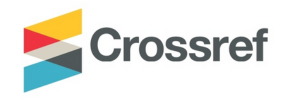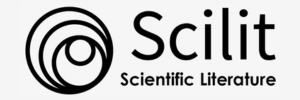The Influence of Pedagogic And Professional Competence of Ismuba Teachers On The Installation of Islamic Values In Students of Muhammadiyah Al Mujahidin Gunungkidul Junior High Schoool
DOI:
https://doi.org/10.63605/ln.v2i2.65Keywords:
Pedagogical Competence, Professional Competence, Instillation, Islamic Religious Values, IsmubaAbstract Background: Instilling Islamic religious values to students is not only a process of transfer of knowledge but also a process of transfer of value. In this process, the one who plays an active role in carrying out learning activities is a teacher. For this reason, teachers are required to have good competence and ability in teaching so that they can carry out their roles optimally. In this regard, teacher competencies that are directly related to the learning process are pedagogical competence and professional competence. Purpose: The purpose of this study is to determine how much contribution the pedagogical and professional competence of ISMUBA teachers has in influencing the instillation of Islamic religious values in students of SMP Muhammadiyah Al Mujahidin Gunungkidul. Design/methods/approach: The type of research conducted by the author is field research with a quantitative approach method based on post-positivistic philosophy. The population of the study used were 95 students of class VIII of SMP Muhammadiyah Al Mujahidin Gunungkidul. Data collection techniques in this study used questionnaires, interviews, observations and documentation. While the data analysis technique used multiple linear regression analysis . Findings: The results of the study indicate that the hypothesis in this study is accepted, both partially (alone) and simultaneously (together). The results of the first test obtained a sig. value of 0.047 <0.05 and a t-count value of 2.011> t-table 1.989. This indicates that Ha1 is accepted; there is an influence of ISMUBA teacher pedagogical competence on the instillation of Islamic religious values in students of SMP Muhammadiyah Al Mujahidin Gunungkidul. The results of the second test obtained a sig. value of 0.033 <0.05 and a t-count value of 2.161> t-table 1.989. These results indicate that Ha2 is accepted; there is an influence of ISMUBA teacher professional competence on the instillation of Islamic religious values in students of SMP Muhammadiyah Al Mujahidin Gunungkidul. The results of the third test obtained a sig. value of 0.000 <0.05 and an F-count value of 12.937> F-table 3.09. These results indicate that Ha3 is accepted; there is an influence of the pedagogical and professional competence of ISMUBA teachers on the instillation of Islamic religious values in students of SMP Muhammadiyah Al Mujahidin Gunungkidul. The coefficient of determination R = 0.220 = 22%. These results indicate that the independent variables, namely pedagogical competence and professional competence of ISMUBA teachers, together influence the dependent variable, namely the instillation of Islamic religious values in students by 22%. Research implications/limitations: This study can generally provide an overview of teacher competence in pedagogical and professional aspects. More specifically, this study can be a simple reference in research on Ismuba in Muhammadiyah schools at the junior high school level. Originality/value: this study is the result obtained from field research and has a novel value in the context of competence for Ismuba teachers at the junior high school level. Further research can develop more widely both in terms of methodology, subjects and scope of the research area
Downloads
References
Abdul Hopid, Sama Alee, A., Nur Anisyah Rachmaningtyas, & Kistoro, HCA (2023). Generation "Z's Perception of Religious Moderation and Tendency to Choose Religious Studies in Indonesia. Journal of Islamic Religious Education , 20 (1), 20–32. https://doi.org/10.14421/jpai.v20i1.7689
'Aini, S., Risdoyok, R., & Junaidi, J. (2021). Contribution of Teaching Experience and Teaching Skills to the Performance of Islamic Religious Education Teachers. Educative : Journal of Educational Sciences , 3 (6), 5116–5125. https://doi.org/10.31004/edukatif.v3i6.1645
Ambarudin, RI (2016). Multicultural education to build a religious nationalist nation. Civics Journal: Citizenship Study Media , 13 (1). https://doi.org/10.21831/civics.v13i1.11075
Bogo, M., Mishna, F., & Regehr, C. (2011). Competency Frameworks: Bridging Education and Practice. Revue Canadienne de Service Social , 28 (2), 275–279.
Bosra, MB, Adi, HC, & Syawaliani, GA (2020). Teacher's Communication Model in Learning Islamic Education for Autism Children. Al-Ta Lim Journal , 27 (3), 306–317. https://doi.org/10.15548/jt.v27i3.636.
Dudung, A. (2018). Teacher Professional Competency. JKKP (Journal of Family Welfare and Education) , 5 (1), 9–19. https://doi.org/10.21009/JKKP.051.02.
Habibullah, A. (2012). Teacher Pedagogical Competence. Education: Journal of Religious and Religious Education Research , 10 (3). https://doi.org/10.32729/edukasi.v10i3.169.
Hopid, A., & Kistoro, H. C. A. (2022). The Existence Of Islamic Education In Pandemic. Fikroh : Journal of Islamic Thought and Education , 15 (2).
Ilham, D. (2019). Initiating Value Education in the National Education System . 8 (3).
Kistoro, H.C.A., Latipah, E., & Burhan, N.M. (2023). Probing Experiential Learning Approach in Islamic Religious Education. Journal of Islamic Education , 9 (2), 157–168. https://doi.org/10.15575/jpi.v9i2.24374.
Kistoro, HCA, Rachmaningtyas, NA, & Pantas, PE (2024). Training in the Preparation of Cognitive Instruments and Analysis of the Quality of Instrument Items with Modern Test Theory for Ismuba Teachers of Muhammadiyah Elementary School, Karangkajen, Yogyakarta. National Seminar on Community Service Results , 882–890.
Kistoro, HC, Zulvia, M., & Asyha, AF (2020). Study of Teacher Competence and Educational Linearity in Improving Student Learning Achievement at Sd Negeri 1 Gunung Tiga and Sd Negeri 1 Ngarip Lampung. Al-Tadzkiyyah: Journal of Islamic Education , 10 (2), 245–255. https://doi.org/10.24042/atjpi.v10i2.5140.
Kistoro, H., Kartowagiran, B., Latipah, E., Naim, N., & Putranta, H. (2020). Implementation of Islamic religious learning strategies in children with autism in Indonesia. Specijalna Edukacija i Rehabilitacija , 19 (4), 227–246. https://doi.org/10.5937/specedreh19-28813.
Masduki, Y., Kistoro, HC, Ru'iya, S., Sutarman, S., & Sukirman, S. (2020). Strengthening Religious Education For Family Resilience In Yogyakarta Muslim Minorities. Conciencia , 20 (1), 28–39. https://doi.org/10.19109/conciencia.v20i1.5686.
Neuman, W. L. (2014). Basics of social research: Qualitative & quantitative approaches (Third edition, Pearson new international edition). Pearson.
Ni'mah, K. (2014). PAI Teacher Personality Competency Concept . 1 .
Pohan, N., & Siregar, YEY (nd). The Role of Principal Supervision on the Implementation of Teachers' Main Tasks: School Action Research. Journal of Elementary Education .
Rahmadiyani, S., Hariani, LS, & Yudiono, U. (2020). Interest in Becoming a Teacher: Perception of the Teaching Profession, Introduction to School Field (PLP) and Self-Efficacy. Journal of Economic Education Research , 5 (1). https://doi.org/10.21067/jrpe.v5i1.4304.
Setyawan, D., & Santosa, AB (2021). Principal and Teacher Competence as the Basis for Achieving Educational Quality. Educative : Journal of Educational Sciences , 3 (5), 3269–3276. https://doi.org/10.31004/edukatif.v3i5.1261.
Sutarman, S., & Parjiman, P. (2021). The Students' Character Values Education Based on Ismuba Values and It's Impact toward Students in Muhammadiyah School Yogyakarta of Pandemic Covid 19 Era. Istawa : Journal of Islamic Education , 6 (2), 92–108. https://doi.org/10.24269/ijpi.v6i1.4076.
Wafi, A. (2017). Basic Concepts of Islamic Religious Education Curriculum . 1 (2).
Downloads
Published
How to Cite
Issue
Section
License
Copyright (c) 2024 Hanif Cahyo Adi Kistoro, Syadana Hanifah Endrairani

This work is licensed under a Creative Commons Attribution-NonCommercial 4.0 International License.





















